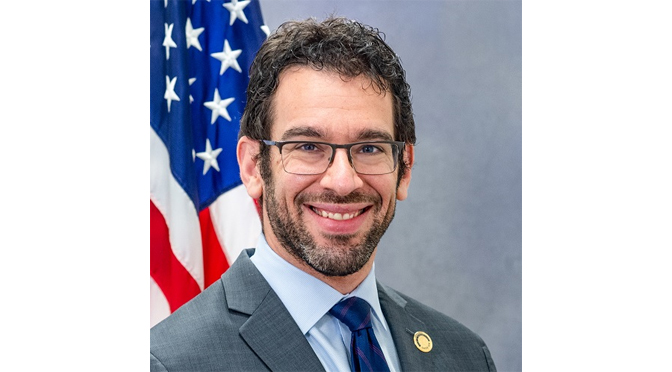|
|
Guest Editorial from House Democratic Caucus Chairman Rep. Mike Schlossberg of Lehigh County
One in five Americans actively suffer from some sort of mental illness. Is that person you, or someone you love?
I’ve been a state representative for over a decade and suffered from depression and anxiety my whole life. As someone who lives with mental illness, I wish I had known at a much younger age how many others were also in pain. I’ve spent my career trying to be as loud as possible about these challenges and reflect these words with actions. Throughout Pennsylvania, people are in pain. More importantly, they can’t find a way to remedy that agony – even if they want to.
Simply put, there aren’t enough therapists.
Suicidal children have to wait in loud, crowded emergency rooms because of a lack of beds.
Too many communities — rural and urban — lack the equipment and technology to properly give therapy over the Internet.
We ask too much of our police and corrections officers, demanding that they manage mental illness without giving them the tools, resources or supports to do so. This lack of support makes all of us less safe.
House Democrats — working in a bipartisan way — are changing this lack of investment with real action. We fought for the inclusion of $100 million in mental health funding in the budget. Recently the House of Representatives approved a report from the Pennsylvania Behavioral Health Commission, a group of experts with widely varying perspectives and opinions on the best way to address our mental health challenges. That legislation, with the funding increase, passed by a massive vote of 173-30, with all Democrats and a majority of Republicans voting yes.
It speaks volumes to the severity of this issue that there was such widespread agreement.
This bill would invest tens of millions of dollars in recruiting therapists, social workers and employees up and down the mental health employment spectrum.
It would invest real money in our jails and prisons, reducing recidivism, keeping our population and corrections officers safe, and ensuring that individuals who are serving time have a chance at rehabilitation.
It would also budget money for more hospital beds, walk-in centers, tools for police officers, and additional collaboration between physical and behavioral health.
However, this is just the tip of the spear when it comes to addressing mental illness. Gov. Josh Shapiro’s budget calls for an additional $100 million for our schools to deal explicitly with mental illness, something that we all know is desperately needed, particularly given the rise of mental illness among kids.
This year’s budget proposal creates a permanent funding stream for the 988 suicide prevention hotline and text line, enabling people in crisis to get the help they need. It also partially restores the devastating cuts to county mental health offices of over a decade ago, ensuring that people who need the most help have access to it.
These efforts aren’t a panacea. They won’t solve every problem. But, like everything we do in government, it’s a step toward addressing a major problem. I’d also add this: Investments in mental health are about more than just providing help to those who need it. It is a statement of values. By passing this legislation, the General Assembly is telling people with mental illness this: Your pain matters. It is real, valid and worthy of treatment.
For too long, mental health has been a secondary consideration. However, if the pandemic taught us anything, it’s that these issues cannot be ignored. They must be addressed comprehensively, compassionately and courageously. Now is the time to act.





